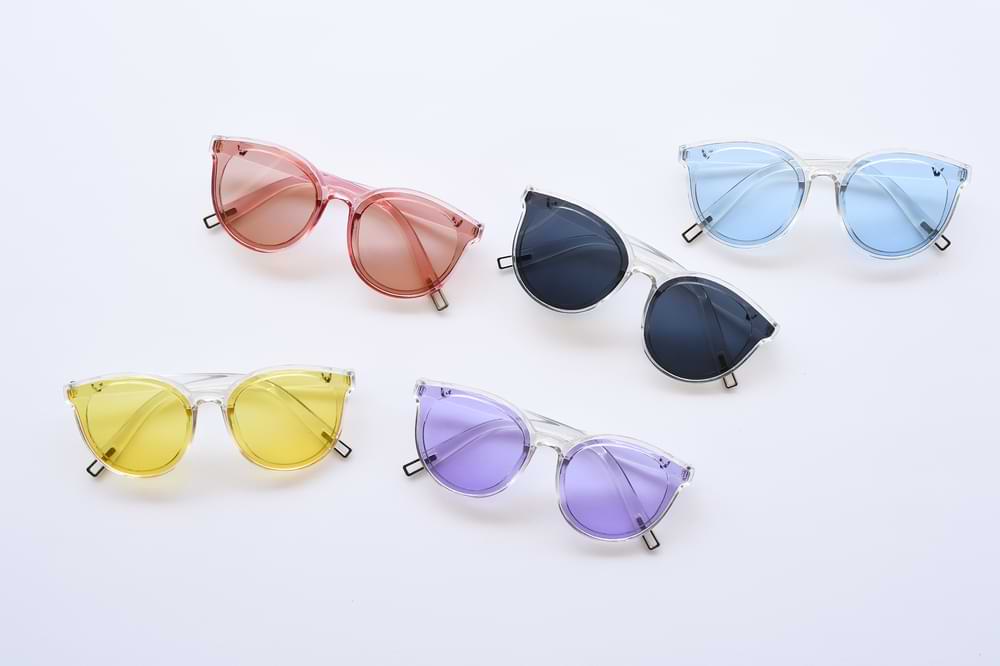Glasses Lens Coatings Explained

How much do you really know about your glasses lens coatings? Could your glasses be doing more to protect your eyes and improve your vision? Just as one example, it might surprise some people to learn that dark tint lenses don’t necessarily offer full UV protection for your eyes. And many people think all anti-reflective coatings are the same, but that’s not true.
In case we haven’t met, I’m Minh Van Tran, owner and principal optometrist at VisionPros Optometrists. My passion lies in helping people achieve optimal vision and eye health. At our practices in Footscray and St. Albans in Melbourne, we strive to provide personalized, comprehensive eye care solutions. Whether it’s choosing the right lens coatings or addressing specific vision needs, my goal is to make sure every patient enjoys the best possible eye care experience.
Contact us today to discover the best lens coatings for your lifestyle and needs. Or alternatively, continue reading to explore how the proper lens coatings can protect and enhance your vision.
Understanding Glasses Lens Coatings
Glasses lens coatings are a vital component of modern eyewear, providing enhancements that go beyond basic vision correction. Whether it’s reducing glare, protecting against scratches, or blocking harmful UV rays, these coatings play an essential role in ensuring your glasses meet your specific needs.
When choosing between single coating or multi-coating, it’s important to consider your daily activities and visual requirements. A single coating might offer basic protection, but a combination of coatings can address multiple issues, making your glasses more versatile and durable. The lens coating process involves applying a thin layer of material onto the lens surface, designed to enhance its properties and performance.
The application of coatings on different surfaces of the lens depends on the specific function of the coating. Anti-reflective (AR) coatings, for instance, are typically applied to the back of the lens. This placement helps to reduce reflections from light entering from behind, improving visual clarity and reducing eye strain.
Conversely, coatings like mirror coatings are applied to the front of the lens. These reflective coatings help to deflect light away from the eyes, minimizing glare and providing additional protection from intense sunlight, making them ideal for outdoor activities.
Hydrophobic and oleophobic coatings can be applied to both the front and back surfaces to repel water and oil, ensuring the lenses remain clean and clear from all angles. The strategic application of these coatings ensures that each provides optimal performance and enhances the overall functionality of the eyewear.
Watch the following video from The Spectacle Factory where Robert goes through a range of popular lens coatings and explains the functional and aesthetic benefits of each.
Anti-Reflective Coating (AR Coating)
Anti-reflective coating is truly transformative for anyone who wears glasses. This innovative coating significantly reduces reflections and glare, making it much easier to see clearly and be seen by others. The benefits of AR coating are particularly notable in situations involving bright lights or screens. For instance, it drastically cuts down on the glare from computer screens and headlights, making night driving safer and more comfortable.
This reduction in glare is not only practical but also improves the overall aesthetics of your glasses by making your eyes more visible. Enhanced eye contact in conversations becomes possible, as there are no distracting reflections obstructing your eyes.
The mechanism behind AR coating involves minimizing the amount of light that reflects off the surface of your lenses. This feature is particularly crucial for high-index, polycarbonate, and aspheric lenses, which naturally reflect more light than standard lenses. These types of lenses, while offering significant vision correction benefits, can often lead to increased glare and reflections. AR coating addresses this issue by allowing more light to pass through the lens instead of bouncing back. The result is a notable enhancement in visual clarity and comfort, as more light reaches your eyes, reducing eye strain and improving overall vision quality.
This technology not only improves the functionality of your glasses but also contributes to a more pleasing and effective visual experience.
Anti-Static Lens Coating
Have you noticed your lenses attracting dust and dirt frequently? Anti-static lens coatings can solve this common problem by preventing the build-up of static electricity on the lens surface. This innovative coating repels dust and debris, keeping your lenses cleaner for longer periods. By reducing the need for constant cleaning, anti-static coatings not only enhance the clarity of your vision but also extend the lifespan of your lenses. This coating is particularly beneficial in dry environments where static electricity is more prevalent.
With anti-static coatings, you can enjoy clearer vision and less maintenance, making your eyewear experience more convenient and comfortable. Whether you work in an office, spend time outdoors, or simply want to reduce the hassle of cleaning your glasses, anti-static lens coatings offer a practical solution to keep your lenses spotless.
Water-Resistant Lens Coating
Do you find yourself frequently wiping away water droplets or smudges from your glasses? Hydrophobic lens coatings provide an effective solution by repelling water and oil, keeping your lenses clearer for longer. This coating creates a smooth surface that prevents moisture from clinging to the lens, causing water to bead up and roll off easily.
Hydrophobic coatings are particularly useful in rainy conditions or during activities that cause perspiration, ensuring your vision remains unobstructed. Whether you’re caught in a downpour, dealing with high humidity, or simply seeking to reduce the hassle of cleaning your lenses, hydrophobic coatings offer enhanced clarity and convenience.
Grease-Resistant Coating
A coating that is resistant to grease and dirt is commonly referred to as an oleophobic coating. This type of coating creates a surface that repels oils and other substances, making it difficult for grease and dirt to adhere to the lens.
Oleophobic coatings are especially beneficial for keeping lenses clean and clear, as they prevent smudges from fingerprints and other oily residues. This results in lenses that require less frequent cleaning and offer consistently clear vision. Whether you’re handling your glasses frequently or working in environments where grease and dirt are prevalent, an oleophobic coating can significantly enhance the cleanliness and usability of your eyewear.

Scratch-Resistant Coating
How can you keep your lenses looking new despite daily wear? Scratch-resistant coating is the answer. This coating increases the durability of your lenses by adding a hard layer that protects against scratches from everyday activities. It’s especially beneficial for those who frequently handle their glasses, such as children, or use high-index and polycarbonate lenses, which can be more prone to scratches.
The scratch-resistant coating works by forming a protective barrier on the lens surface, making it more resilient to minor abrasions. This doesn’t make the lenses completely scratch-proof but significantly reduces the likelihood of damage. It ensures your lenses remain clear and functional longer, saving you from frequent replacements.
Anti-Fog Coating
Anti-fog coating is a practical solution for maintaining clear vision in various environments. This coating is especially useful in cold climates, high humidity areas, or when wearing masks. It prevents condensation from forming on the lenses, ensuring you have a clear view no matter the temperature or activity.
The proper term for an anti-fog coating is hydrophilic coating. This type of coating absorbs moisture and spreads it across the surface of the lens in a thin, uniform layer, preventing fogging.
This coating is essential for anyone who needs clear vision in varying conditions, such as athletes, healthcare workers, and outdoor enthusiasts. It enhances safety and convenience, allowing uninterrupted visual clarity during crucial moments. Whether you’re working in a high-humidity environment or just trying to see clearly while wearing a mask, anti-fog coating ensures your lenses remain clear and reliable.
UV Protection Coating
How important is it to protect your eyes from the sun’s harmful rays? UV protection coating on your glasses is essential for safeguarding your eyes against ultraviolet (UV) radiation. Prolonged exposure to UV rays can lead to serious eye conditions such as cataracts and macular degeneration. This coating blocks UV rays, offering significant protection for your eyes.
UV protection coating works by filtering out the harmful UV rays while allowing beneficial light to pass through. It’s particularly important for prescription sunglasses, as it combines the need for vision correction with essential eye protection. This coating is also valuable for everyday prescription lenses, providing comprehensive protection without the need for multiple pairs of glasses.
For those who spend a lot of time outdoors or have a high sensitivity to light, UV protection coating is a crucial addition to their eyewear. It ensures that your eyes remain healthy and comfortable, allowing you to enjoy outdoor activities without compromising your vision or eye health.
Blue Light Protection Coating
How does screen time affect your eyes? Blue light protection coating is designed to reduce the strain and potential damage caused by prolonged exposure to digital screens. Blue light from computers, smartphones, and tablets can lead to digital eye strain, which includes symptoms like headaches, dry eyes, and blurred vision. Blue light protection reduces eye fatigue and discomfort, allowing for longer and more comfortable screen use. This coating also helps improve sleep quality by minimizing the disruption of the natural sleep cycle caused by blue light exposure, especially in the evening.
Self-Tinting Lenses (Photochromic Lenses)
What if your glasses could adapt to changing light conditions? Self-tinting lenses, also known as photochromic lenses, offer this convenience. These lenses automatically darken in bright sunlight and return to clear indoors. This adaptability makes them perfect for those who move between different lighting environments throughout the day.
Self-tinting lenses eliminate the need to switch between prescription glasses and sunglasses, providing a seamless experience. When exposed to UV light, these lenses react and darken, reducing glare and improving visual comfort. Indoors, they quickly revert to clear, ensuring optimal vision without any effort on your part.
Photochromic lenses work through a chemical reaction that occurs when exposed to UV rays. This reaction causes the molecules in the lenses to change structure, absorbing more light and thus darkening the lenses.
For individuals sensitive to light or those who spend considerable time both indoors and outdoors, self-tinting lenses offer unmatched convenience and protection. Outdoor workers and light-sensitive patients particularly benefit from these lenses, as they adapt to varying light conditions, providing consistent visual comfort and clarity.

Mirror Coatings
Ever wondered how you can add a stylish touch to your sunglasses while enhancing their functionality? Mirror coatings do just that. Mirror coatings work by applying a thin, reflective layer to the front surface of the lenses. This layer reflects a portion of the light, reducing the overall light intensity that reaches the eyes.
These coatings can give your lenses a fashionable appearance while blocking the maximum amount of harmful radiation. This makes them ideal for outdoor activities such as skiing, snowboarding, or spending a day at the beach. By reflecting excess light, mirror coatings help reduce glare and improve visual comfort.
For those who need prescription sunglasses, mirror coatings can be an excellent option, combining style with functionality. The reflective finish adds an element of sophistication and modernity to any pair of sunglasses, making them not just a protective accessory but also a fashion statement. Whether you’re on the slopes, at the beach, or simply driving on a sunny day, mirror-coated lenses offer enhanced protection and visual clarity. This dual benefit of style and practicality makes mirror coatings a popular choice among eyewear users who seek both aesthetic appeal and superior eye protection. With mirror coatings, you can enjoy the best of both worlds: standout style and enhanced optical performance.
Maintaining Your Glasses Lens Coatings
How do you keep your coated lenses in top condition? Proper maintenance of your glasses ensures that the coatings remain effective and your lenses provide clear vision for a long time. Using the right cleaning materials and techniques is crucial for preserving the integrity of the coatings.
Start by using a microfiber cloth to clean your lenses. Unlike ordinary fabrics, microfiber cloths are designed to gently remove dust and smudges without scratching the surface. Combine this with a lens cleaning solution specifically formulated for coated lenses to avoid damaging the coatings.
When cleaning your lenses, rinse them with water first to remove any abrasive particles that could scratch the surface. Apply the cleaning solution and gently wipe with a microfiber cloth. Avoid using household cleaners or paper towels, as these can harm the coatings and reduce their effectiveness.
Safe storage practices also play a vital role in maintaining your lenses. Always store your glasses in a protective case when not in use to prevent scratches and impacts. Keep them away from extreme temperatures, as heat can damage the coatings. Handling your lenses carefully by avoiding drops and impacts will also help maintain their condition.
Regular check-ups with your optometrist ensure that your lenses remain in good shape and that any issues are addressed promptly. Proper maintenance not only extends the life of your lenses but also ensures that you continue to enjoy clear and comfortable vision.
CONCLUSION
Understanding the various glasses lens coatings, like anti-reflective, scratch-resistant, and UV protection, can greatly enhance your visual comfort and eye health. In addition, specialized coatings, such as blue light protection and anti-fog, offer additional benefits tailored to modern digital lifestyles and varying environmental conditions.
Without UV protection, your eyes are exposed to harmful rays, increasing the risk of cataracts and other eye conditions. And not using anti-reflective coatings can make night driving hazardous due to excessive glare.
Join the community of proactive individuals who prioritize their eye health. Book your consultation with us today and experience the peace of mind that comes with professional eye care.
Click on the “BOOK AN APPOINTMENT” button OR call either our St. Albans (03) 9364 5509 or Footscray (03) 9687 8787 optometry practices.

Minh gained his Bachelor of Optometry in 2000, and his Certificate in Ocular Therapeutics (ACO) in 2016.
He started VisionPro Optometrists in 2008 and has been Principal Optometrist ever since, working in both the Footscray and the St Albans practices.
Minh is a member of Optometrist Association Australia and the ACO. He always strives to achieve the highest standard of professionalism when delivering eyecare to all his patients.
Minh’s special areas of interest include ocular diseases and management, children’s vision and contact lens fitting. Minh enjoys travelling and reading in his spare time.
